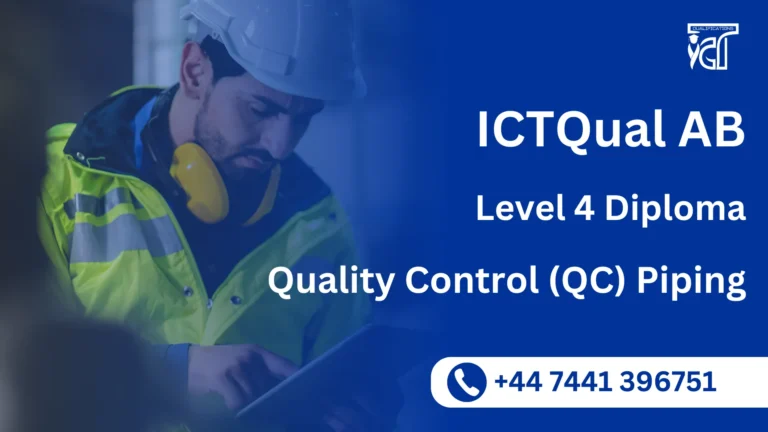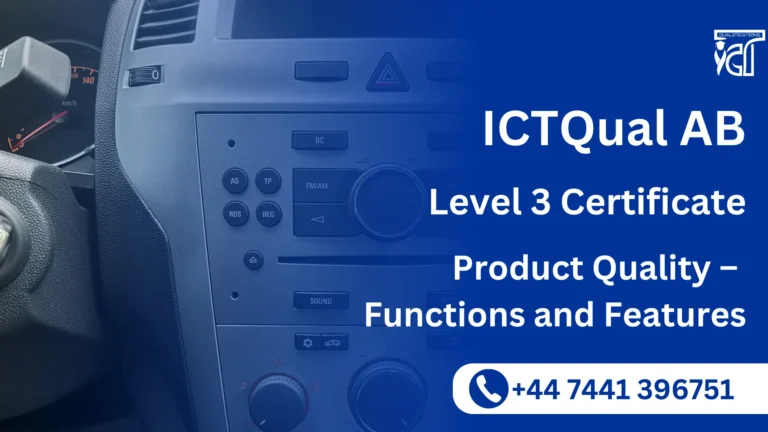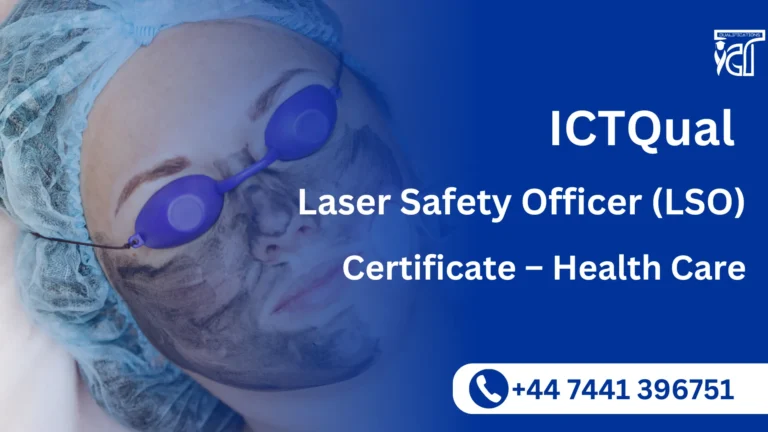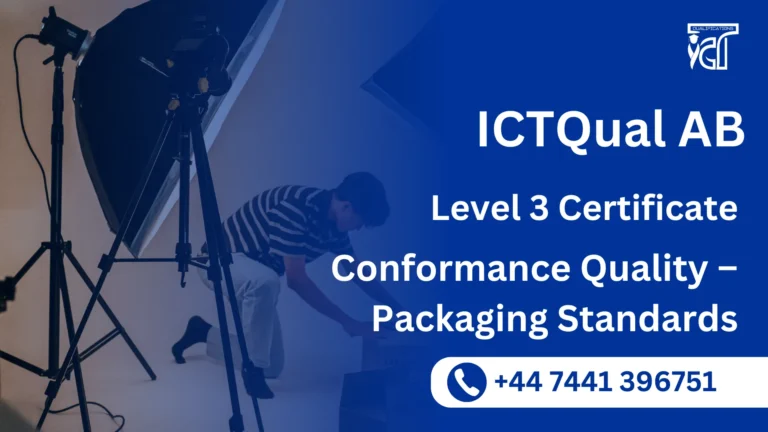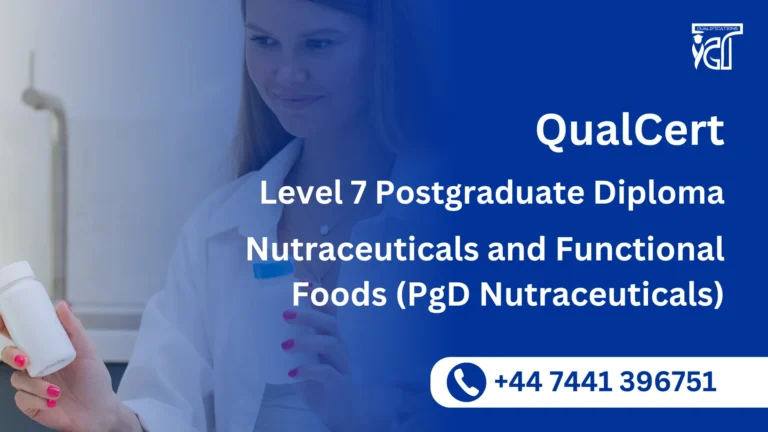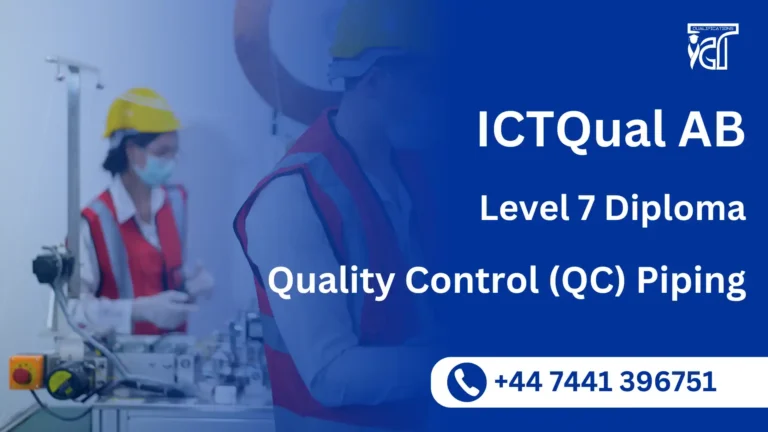The ICTQual AB Level 7 Diploma in Piping QA/QC Engineer is an advanced qualification designed for experienced professionals seeking to master the principles of quality assurance and quality control in piping engineering. It provides in‑depth knowledge of inspection, compliance, and project management practices required in complex industrial environments.
This program emphasizes advanced technical expertise in piping design, fabrication, welding, and nondestructive testing (NDT). Learners will explore international codes and standards such as ASME, API, and ISO, while developing the ability to lead QA/QC teams, manage documentation systems, and ensure compliance across large‑scale projects.
Participants will strengthen their analytical, leadership, and decision‑making skills, enabling them to oversee inspection processes, resolve technical challenges, and implement effective quality management systems. The course also integrates risk assessment, safety management, and continuous improvement strategies to prepare learners for senior engineering responsibilities.
By completing this diploma, learners position themselves for leadership roles in oil, gas, petrochemical, construction, and power generation industries. The qualification also provides a pathway to specialized certifications and professional recognition, supporting long‑term career advancement as a QA/QC engineer in global industrial sectors.
ICTQual AB Level 7 Diploma in Piping QA/QC Engineer
This qualification, the ICTQual AB Level 7 Diploma in Piping QA/QC Engineer, consists of 6 mandatory units.
| Sr# | Unit Title |
| 1 | Strategic Quality Management in Global Piping Projects |
| 2 | Innovation and Emerging Technologies in Piping Inspection |
| 3 | Legal, Regulatory, and Contractual Frameworks in Quality Control |
| 4 | Advanced Risk Analysis and Decision-Making in QC Systems |
| 5 | Quality Control in High-Risk Environments: Offshore, LNG, and Power Sectors |
| 6 | Capstone Research Project: Future Trends in Piping QA/QC Engineering |
Learning Outcomes for the Study Units:
Strategic Quality Management in Global Piping Projects
- Develop comprehensive quality strategies tailored to multi-phase, international piping projects.
- Analyse the influence of organisational vision, stakeholder expectations, and regulatory trends on strategic quality thinking.
- Evaluate continuous improvement processes and adjust strategic quality frameworks to reflect evolving project goals and industry best practices.
Innovation and Emerging Technologies in Piping Inspection
- Investigate how emerging technologies including robotic NDT, AI-assisted inspection, and NDE 4.0 methods—can enhance piping inspection quality and efficiency.
- Formulate strategies to integrate digital inspection systems into quality assurance workflows.
- Assess improvements in inspection accuracy, safety, and data-driven decision-making achieved through technological innovation.
Legal, Regulatory, and Contractual Frameworks in Quality Control
- Interpret legal obligations, contracts, and international codes relevant to piping QA/QC.
- Design compliant QA/QC protocols that satisfy legal, regulatory, and contract-specific requirements.
- Lead resolution of contractual non-conformities with structured analysis and corrective procedures.
Advanced Risk Analysis and Decision‑Making in QC Systems
- Employ advanced risk assessment methods such as FMEA, root cause analysis, and risk-based inspection planning.
- Make data-informed decisions within QC systems under uncertainty, aligning quality strategy with risk mitigation.
- Monitor risk trends and implement adaptive strategies to support continuous quality improvement.
Quality Control in High‑Risk Environments: Offshore, LNG, and Power Sectors
- Develop robust QA/QC programmes tailored for high-consequence environments such as offshore installations, LNG infrastructure, and power generation facilities.
- Evaluate environmental, safety, and industry-specific quality pressures in executing inspections and verification.
- Apply tailored inspection protocols and control plans that meet critical safety, technical, and regulatory thresholds.
Capstone Research Project: Future Trends in Piping QA/QC Engineering
- Design and conduct an independent research project on emerging challenges or technological advancements in piping QA/QC.
- Critically review relevant academic and industry research to inform project objectives and methodology.
- Present practical findings and strategic recommendations that could influence future piping QA/QC practices or policy.
The ICTQual AB Level 7 Diploma in Piping QA/QC Engineer is an advanced qualification that equips professionals with the expertise to lead inspection, quality assurance, and compliance activities in complex industrial projects. It is designed to strengthen technical mastery, leadership, and global career opportunities.
Technical Knowledge and Skills
- Advanced understanding of piping design, fabrication, and welding processes
- Expertise in nondestructive testing (NDT) methods and inspection technologies
- Mastery of international codes and standards such as ASME, API, and ISO
- Ability to implement and manage quality control systems across large projects
- Skills to identify, analyze, and resolve complex technical issues
- Competence in preparing and reviewing detailed QA/QC documentation and reports
Career Development Opportunities
- Eligibility for senior QA/QC engineer and inspection leadership roles
- Recognition as a highly qualified professional in oil, gas, petrochemical, and construction industries
- Competitive advantage in securing international assignments and consultancy positions
- Pathway to specialized certifications in welding inspection, NDT, and industrial safety management
- Opportunities to progress into project management and compliance auditing roles
- Enhanced employability in multinational corporations and engineering consultancies
Professional Skills Growth
- Development of leadership and team management capabilities
- Strengthening of analytical, problem‑solving, and decision‑making skills
- Improved communication and reporting for technical and managerial contexts
- Confidence in leading QA/QC teams and ensuring compliance with global standards
- Ethical awareness and accountability in inspection and quality assurance practices
- Adaptability to diverse industrial environments and high‑pressure project demands
Organizational Impact
- Contribution to operational excellence through advanced QA/QC leadership
- Reduction of risks and failures by ensuring strict compliance with standards
- Support for organizational credibility and client trust in project delivery
- Promotion of continuous improvement and innovation in inspection practices
- Strengthening of safety culture across industrial operations
- Long‑term sustainability and reliability of infrastructure through effective quality management
The ICTQual AB Level 7 Diploma in Piping QA/QC Engineer is designed for experienced professionals aiming to achieve mastery in inspection, quality assurance, and compliance within piping engineering. This advanced program is suitable for individuals seeking senior roles and leadership responsibilities in global industries.
Professional Background
- Experienced QA/QC inspectors or engineers working in oil, gas, petrochemical, or construction sectors
- Professionals with prior qualifications in piping, welding, or mechanical engineering disciplines
- Senior technicians or supervisors aiming to transition into engineering and leadership positions
- Individuals with substantial industry exposure seeking formal recognition of advanced expertise
- Candidates aspiring to manage QA/QC teams and oversee large‑scale industrial projects
- Professionals preparing for consultancy or international assignments in inspection and compliance
Skills and Competencies
- Strong technical knowledge of piping systems, fabrication, and welding processes
- Proficiency in applying international codes and standards such as ASME, API, and ISO
- Ability to lead inspection teams and manage QA/QC documentation systems
- Advanced problem‑solving and analytical skills for complex industrial challenges
- Competence in risk assessment, safety management, and compliance auditing
- Effective communication and leadership skills for managing multidisciplinary teams
Learning Goals and Attributes
- To achieve mastery in QA/QC engineering practices for piping systems
- To prepare for senior engineering and leadership roles in global industries
- To strengthen career prospects through advanced certification and recognition
- To develop expertise in managing inspection processes across complex projects
- To build capacity for consultancy, auditing, and international assignments
Completing the ICTQual AB Level 7 Diploma in Piping QA/QC Engineer positions learners at the highest level of expertise in inspection and quality assurance. This advanced qualification opens pathways to senior leadership roles, specialized certifications, and global career opportunities in engineering and quality management.
Advanced Academic Pathways
- Progression to specialized certifications in advanced nondestructive testing (NDT) and welding inspection
- Opportunities to pursue international qualifications aligned with ASME, API, ISO, and other global standards
- Access to professional memberships in engineering and QA/QC associations worldwide
- Eligibility for advanced training in project management, risk assessment, and compliance auditing
- Pathway to continuous professional development through industry‑recognized modules and workshops
- Expansion into multidisciplinary studies such as mechanical integrity, asset management, and industrial safety
Career Development Opportunities
- Eligibility for senior QA/QC engineer and inspection manager roles across global industries
- Opportunities to lead QA/QC departments and oversee large‑scale industrial projects
- Recognition as a highly qualified professional for consultancy and auditing positions
- Competitive advantage in securing international assignments and leadership roles
- Potential to transition into executive positions in engineering and quality management
- Enhanced employability in multinational corporations, EPC contractors, and engineering consultancies
Global Opportunities and Industry Impact
- Access to international career prospects in oil, gas, petrochemical, construction, and power generation sectors
- Participation in global projects requiring advanced QA/QC leadership and compliance expertise
- Opportunities to collaborate with international inspection bodies and certification agencies
- Expansion into emerging industries such as renewable energy, marine engineering, and advanced manufacturing
- Contribution to organizational excellence through leadership in quality assurance and risk management
- Establishment of a long‑term career pathway with global recognition and sustainability
Entry Requirements
Learners must meet the following criteria to be considered for admission into the course:
- Age Requirement: Minimum age of 21 years at the time of enrollment
- Educational Background: Completion of a Level 6 technical qualification or equivalent in engineering, mechanical, or related fields
- Work Experience: At least 3–5 years of relevant industry experience in QA/QC, piping, fabrication, or inspection roles
- English Language Proficiency: Good command of English for reading technical standards, preparing reports, and participating in discussions (CEFR B2 or IELTS 5.5–6.0 or equivalent recommended)
Register Now
Qualification Process
Qualification Process for the ICTQual AB Level 7 Diploma in Piping QA/QC Engineer
- Self-Assessment:
Begin by evaluating your eligibility to ensure you meet the qualification requirements, including work experience, knowledge, and language proficiency. - Registration:
Complete your registration by submitting the required documents, including a scanned copy of a valid ID, and paying the registration fee. - Induction:
An assessor will conduct an induction to confirm your eligibility for the course and explain the evidence requirements. If you do not meet the criteria, your registration will be cancelled, and the fee will be refunded. - Assignments & Evidence Submission:
Provide all assignments and the necessary evidence based on the assessment criteria outlined in the course. If you are unsure of the required evidence, consult with the assessor for guidance on the type and nature of evidence needed. - Feedback and Revision:
The assessor will review your submitted evidence and provide feedback. Evidence that meets the criteria will be marked as “Criteria Met,” while any gaps will be identified. You will be asked to revise and resubmit if needed. - Competence Evidence:
Submit final evidence demonstrating that all learning outcomes have been met. This evidence will be marked as “Criteria Met” by the assessor once it is satisfactory. - Internal Quality Assurance (IQA):
The Internal Quality Assurance Verifier (IQA) will review your evidence to ensure consistency, quality, and compliance with standards. - External Verification:
The IQA will submit your portfolio to ICTQUAL AB External Quality Assurance Verifiers (EQA) for final confirmation. The EQA may contact you directly to verify the authenticity of your evidence. - Certification:
Upon successful completion of all checks, ICTQUAL AB will issue your official certificate, confirming that you have attained the ICTQual AB Level 7 Diploma in Piping QA/QC Engineer


